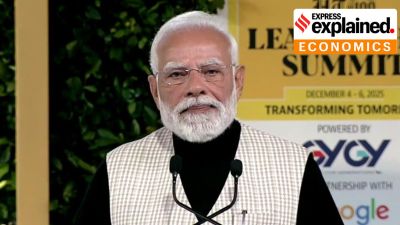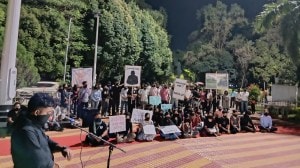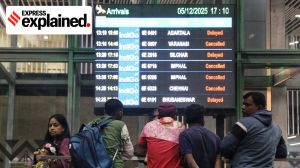Conflict resolution, India’s way
The enormous loss of life caused by the October 8 earthquake in PoK together with the damage it inflicted also on the Indian side of the LoC...

The enormous loss of life caused by the October 8 earthquake in PoK together with the damage it inflicted also on the Indian side of the LoC, has evoked an equally large human response across the territorial divide. This brings in new hopes even in this moment of great tragedy.
It is clear that political and geographical barriers cannot override the human bonds that drove the civilians as well as our men in uniform to try to do whatever they could to reach out to the people oscillating between life and death on the other side. The disaster brought home a message; life is too precious a thing to be destroyed by acts of hate or revenge.
But it is equally clear that this acknowledgement of a shared community is embattled in today’s world, as never before. Terrorist attacks in Ayodhya and London, the country-wide bomb blasts in Bangladesh, and the suicide bombings in Bali throw light on the current status of global terror.
The London strikes, now owned by al Qaeda, are a reminder of the new terror unfolding in the wake of developments in Afghanistan and Iraq. The Bangladesh blasts are attributed to the Jamiat-ul-Mujahideen, a militant offshoot of the Hizbul Mujahideen, now collaborating with the Taliban-al Qaeda stream, while the bombings at Bali are suspected to be the handiwork of the pro-al Qaeda elements of the Jemaah Islamiyah. The failed attempt of the terrorists at Ayodhya, however, was an extension of the Pak-sponsored proxy-war against India.
The second Bush administration is conducting the war on terror on two planks. One is the apparent reliance of the US on a distinction between ‘‘moderate Islamists’’ representing ‘‘political Islam’’ and the ‘‘radical Islam’’ accounting for the so-called ‘‘jehadi terrorism’’. Interestingly, this distinction coincides with a benign view taken by the West, of those who, under the umbrella of Maulana Maudoodi’s Jamaat-e-Islami and its forerunner, the Muslim Brotherhood, initially led the anti-Soviet armed campaign in Afghanistan on the war cry of jehad.
The West in general and the US in particular, faced an entirely new situation when the Taliban, product of the Deobandi madrasas spread across NWFP-Afghan belt, established their hold on Afghanistan in 1996 and got the support of the Arab radical stream of Wahabis symbolised by Osama bin Laden’s al Qaeda. The Taliban-al Qaeda axis is intrinsically hostile to the West. It carries the legacy of the ulema-led jehadi movements that were launched in diverse regions like Algeria, Arabia and India in the middle of the 19th century against western domination. The International Islamic Jehad established by bin Laden presently represents a confluence of Islamic radicals of Arab, Afghan, South and South East Asian origin.
Pakistan, while trying to convince the US that it was engaged in serious combat against al Qaeda, kept up its proxy war against India mainly using the outfits under the ISI’s influence — principally the Hizbul Mujahideen of the Jamaat stream and the Lashkar-e-Toiba, product of the Muridke-based Markaz Dawah-ul-Irshad run by the Pak-Saudi combine. The American preoccupation with the al Qaeda sponsored global terror had created an Indo-US differential on what was happening by way of the cross border terrorism directed against India.
There is perhaps now a better understanding in the US of India’s concerns. India has appealed to the world community to speak in one language against terrorism. It is hoped that in the new situation created by the Indo-Pak talks, Musharraf would be able to keep his share of the responsibility.
The second feature of the war on terror is the declared policy of the US that it would strive to have the democracy deficit removed from those Muslim countries which have become vulnerable to the radical fundamentalists.
India would welcome the return of democracy to all those societies which had not had the benefit of enjoying it so far. However, there is some validity in the argument that modernisation is not necessarily synonymous with westernisation. Also, the advance of democracy in any society is dependent on the degree of popular acceptance of the idea that every citizen, regardless of creed or sex, will have the same rights and obligations. Right now there seems to be an internal conflict developing between the ruling elites cooperating with the West and large sections of masses who are under the influence of Islamic radicals. There is a strong presence of such forces in the western and eastern neighbourhood of India.
India has the advantage that not only is its democracy deeply entrenched, the Indian communities do not have any inclination to get involved in the wider religion-based conflict in the world around us. Firm on the platform of secular sovereignty that promotes inclusive cultural pluralism, India can combine effective counter-terrorism measures at home, conducted in a professional way to keep them in line with human rights, with the possibility of playing a global role in the arena of conflict resolution.
The writer is a former director of the Intelligence Bureau
- 01
- 02
- 03
- 04
- 05































